Without his iPad, Derrick Curtis would be lost.
He calls it his second brain.
In September 2014, the Byron Center, Michigan, resident sustained severe injuries in a motorcycle crash that shattered his pelvis, broke his ribs and fractured both hips and his left leg.
It also caused a traumatic head injury that permanently affected his memory.
Recovery and adaptation haven’t been easy.
After 14 days at Spectrum Health Butterworth Hospital, where his wife, Deb, is a nurse, then a couple of weeks at Spectrum Blodgett Hospital, Curtis faced months of at-home rehabilitation.
“I had a lot of hurdles, and there were times I didn’t think I’d make it,” said Curtis, 57. “When I got home, I was in a wheelchair and even needed help putting my socks on.”
His determination helped him conquer the physical hurdles, such as dressing and walking, but it required a different approach to overcome the brain injury.
“Tracking time, recalling events and remembering his ‘to do list’ was very difficult for Derrick, but he was very determined,” said speech and language pathologist Zachary Pilczuk, rehabilitation supervisor of Spectrum Health at Home Neuro Rehabilitation Services.
“Once he saw how these areas of difficulty were impacting him and his goals for recovery, he became very focused,” Pilczuk said.
Curtis’ wife bought him an iPad during his recovery, and Pilczuk encouraged him to use it for organization and memory. It could help him keep a calendar, schedule tasks and set alarms.
End result: It’s working.
Curtis can now remember his medications, tackle his to-do list and take it to doctors’ appointments to track details of his care. He’s even finding time to give back to the community as a volunteer.
As he looks back, he can’t help but feel a profound sense of gratitude.
“I’m very thankful I had such a great team,” Curtis said. “I had the best of the best.”
Patient perspective
Most of the time, Curtis’ at-home rehabilitation went smoothly. But he remembers a day shortly after his discharge when he became overwhelmed and lost his patience with his therapists.
“I couldn’t think and I was mentally exhausted,” he said. “I showed them the door and gave them the boot.”
They understood. And by the time they returned for the next appointment, he was ready for a fresh start.
That’s a story he shares nowadays during the bi-weekly orientation training for new employees at Spectrum Health at Home Neuro Rehabilitation Services.
“He talks to them about what having a brain injury is like, about the attitude they should have, and about the attitudes they should encourage in their patients,” said nurse educator Holly Anderson, who coordinates the training.
Curtis emphasizes the importance of three things: humility, punctuality and humor.
“Our staff says it’s one of the most impactful experiences of their orientation,” Anderson said. “They appreciate the opportunity to ask questions and hear what it’s like from a client perspective.”
Before the crash, Curtis had a wide variety of interests and a storied work history.
He held jobs as a boat captain, a mechanic and a salesman, the latter involving the sale of motorcycle ramps at rallies around the nation.
At home, his man cave is outfitted with a trumpet, a mandolin and a 1930s-era Hawaiian ukulele.
He carries a harmonica wherever he goes.
And although his favorite music is the blues, he’s not one to feel sorry for himself. This jack-of-all-trades knows the importance of remaining positive, although some days are easier than others.
He also knows that variety is the spice of life. Fittingly, he incorporates it into each day.
He has restored a 2001 Mazda Miata. He bakes bread every morning. He re-builds custom harmonica microphones. He uses his talents to help others.
Until recently, his volunteerism included a gig at Spectrum Health Zeeland Community Hospital, where he helped with therapeutic harmonica lessons for the Better Breathers Club.
“I had to breathe in one of those little tubes with a ball in it (during rehab), and it wasn’t fun,” said Curtis, a harmonica player for more than 40 years. “I really enjoyed teaching the harmonica, something they can use the rest of their lives.”
He plans to conduct volunteer friendly visits in the near future through Spectrum Health at Home.
“It’s all about giving back,” Curtis said. “It’s who you are. How could you go before God and say, ‘I wasted the most precious thing you ever gave me—my life?’”
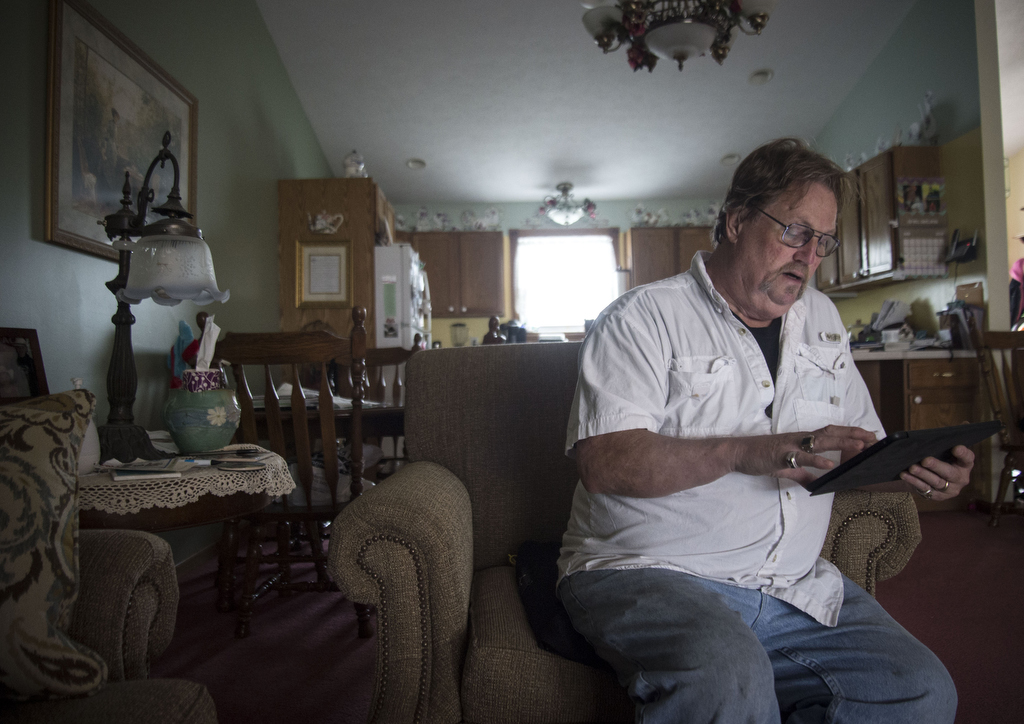
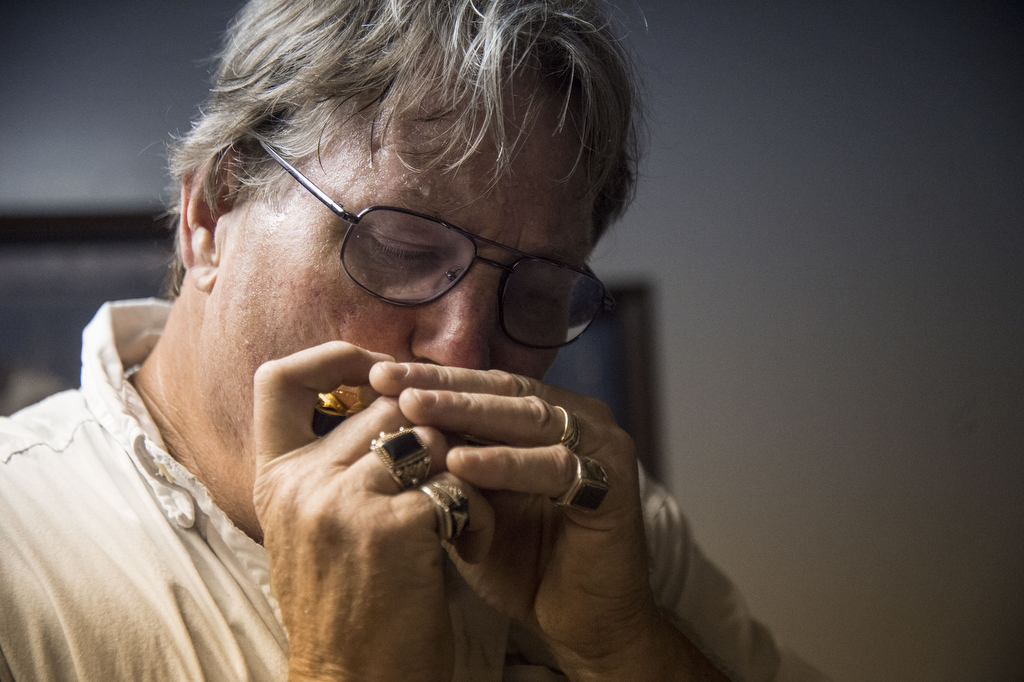
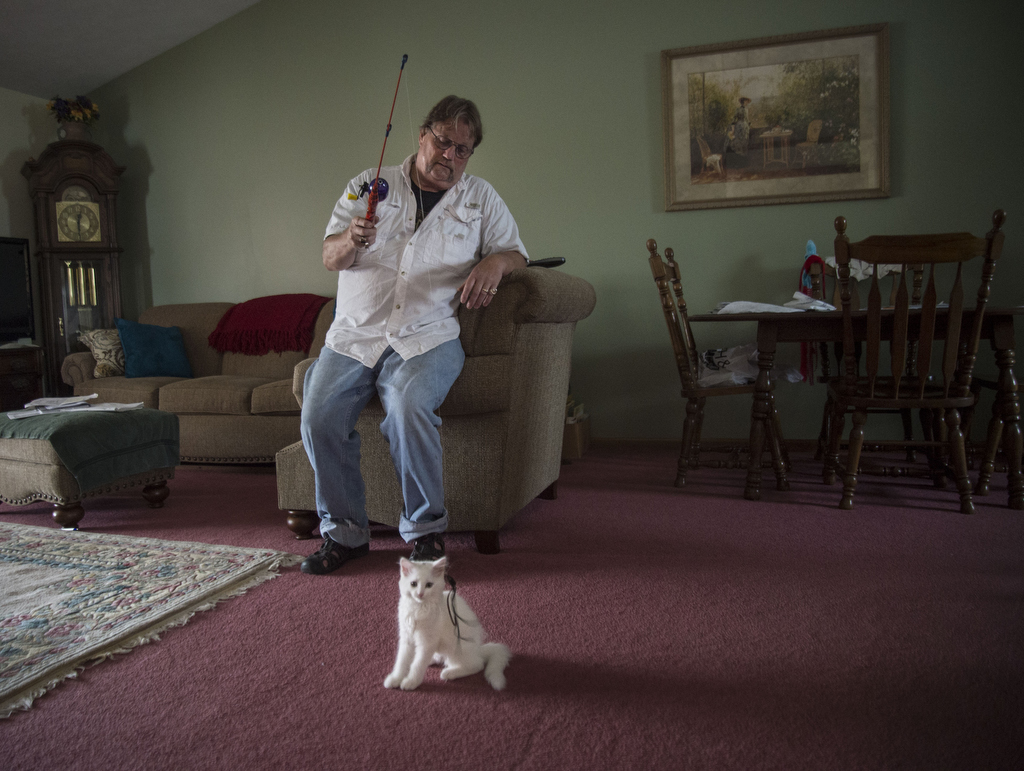

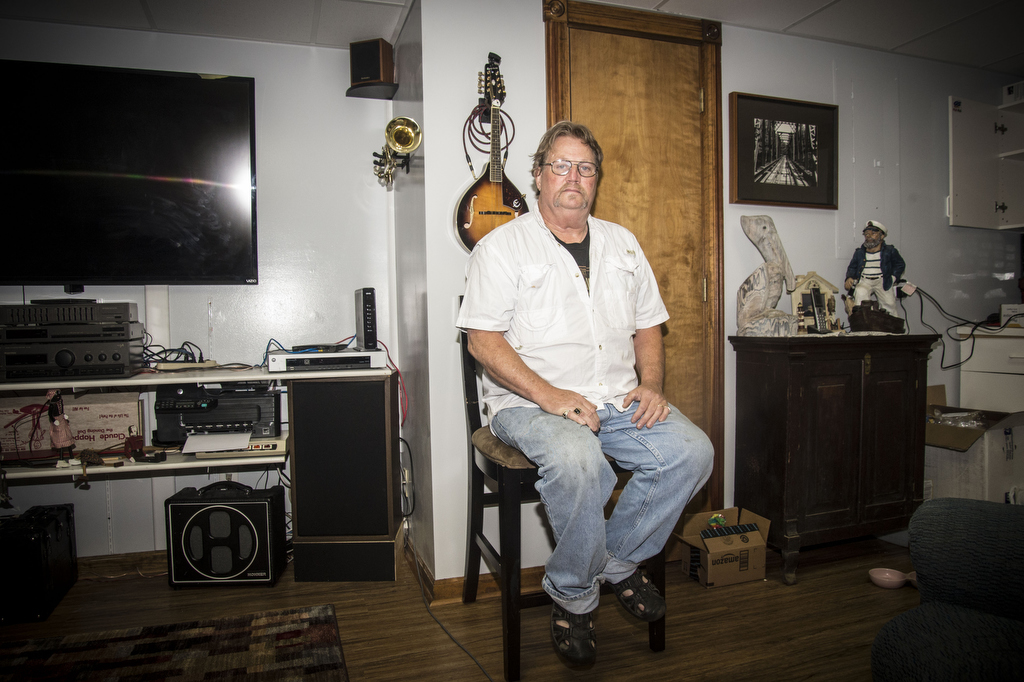
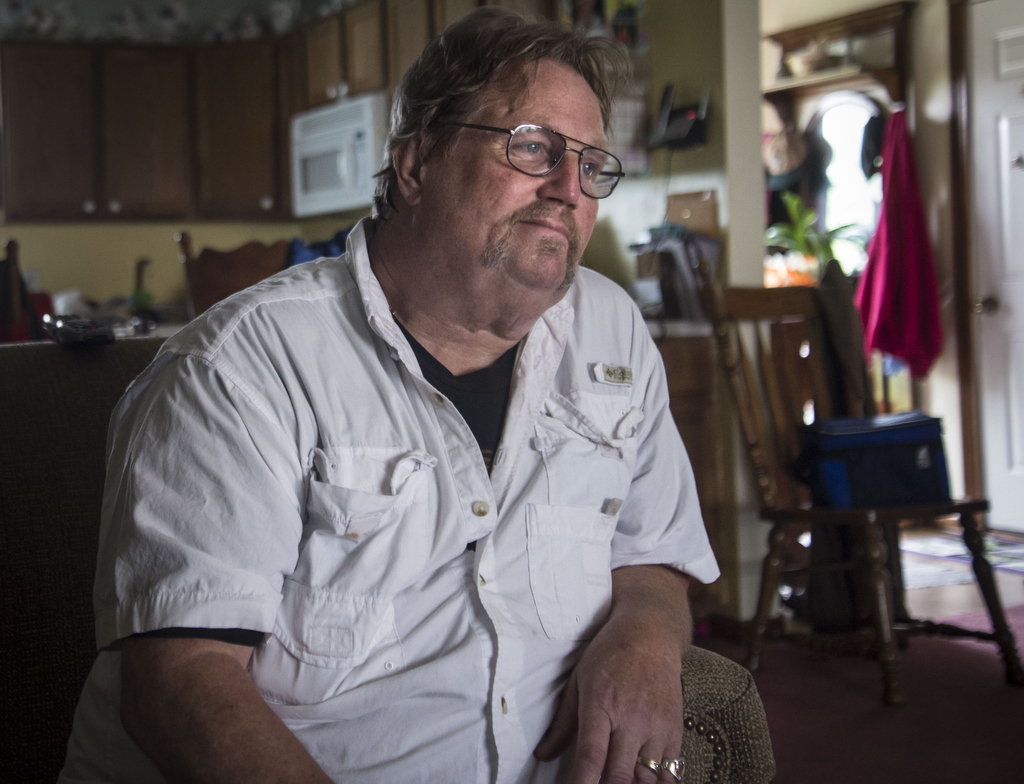
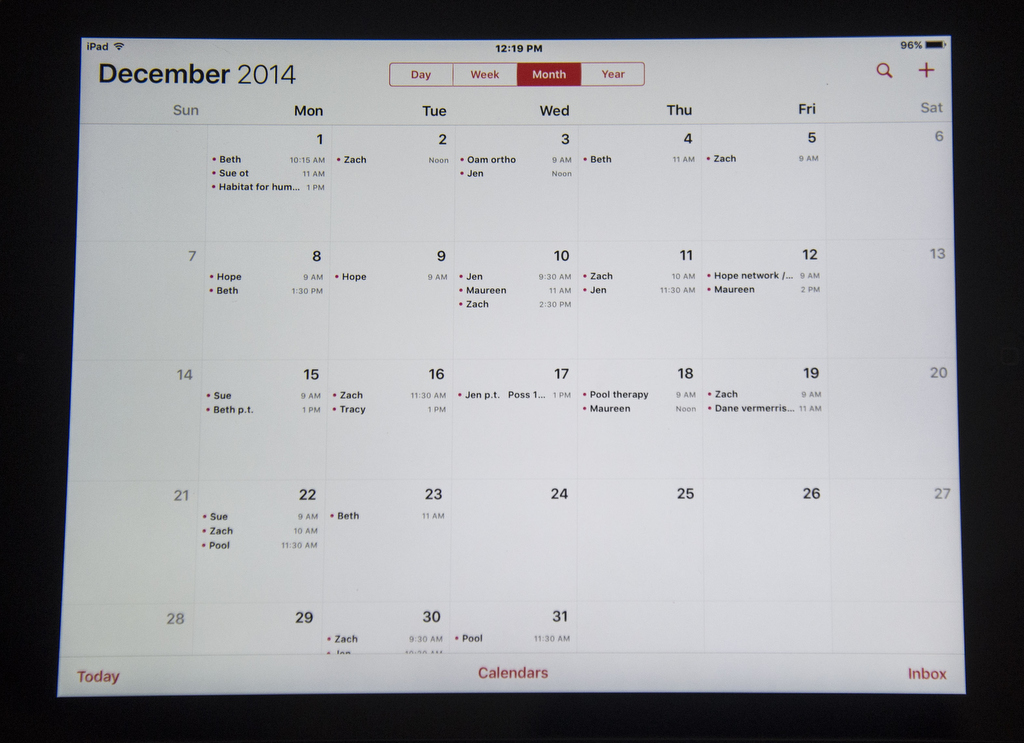
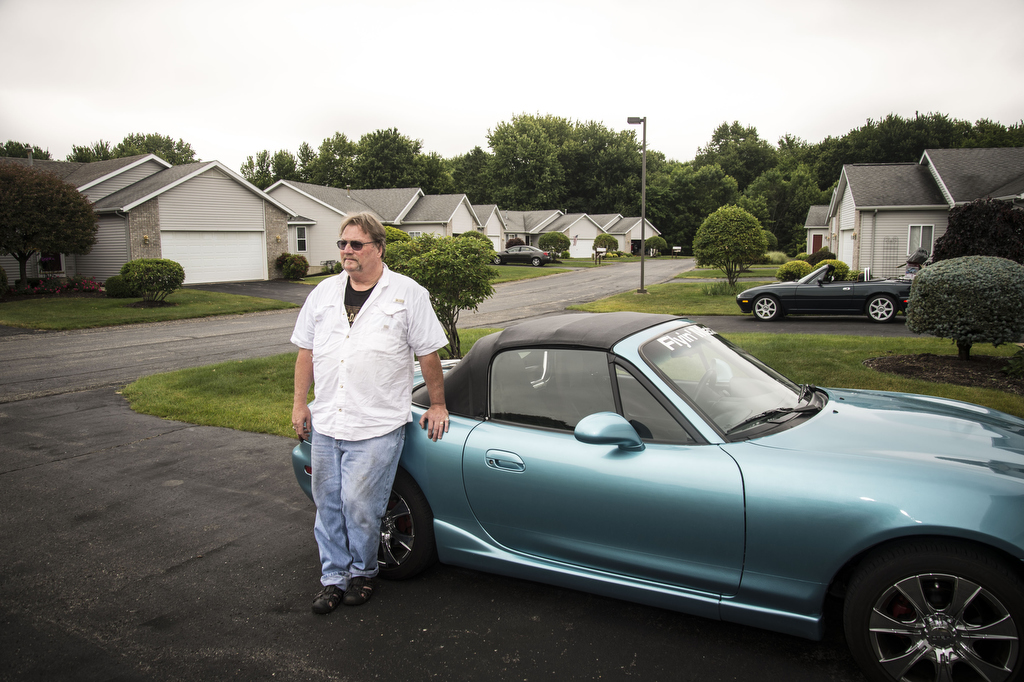
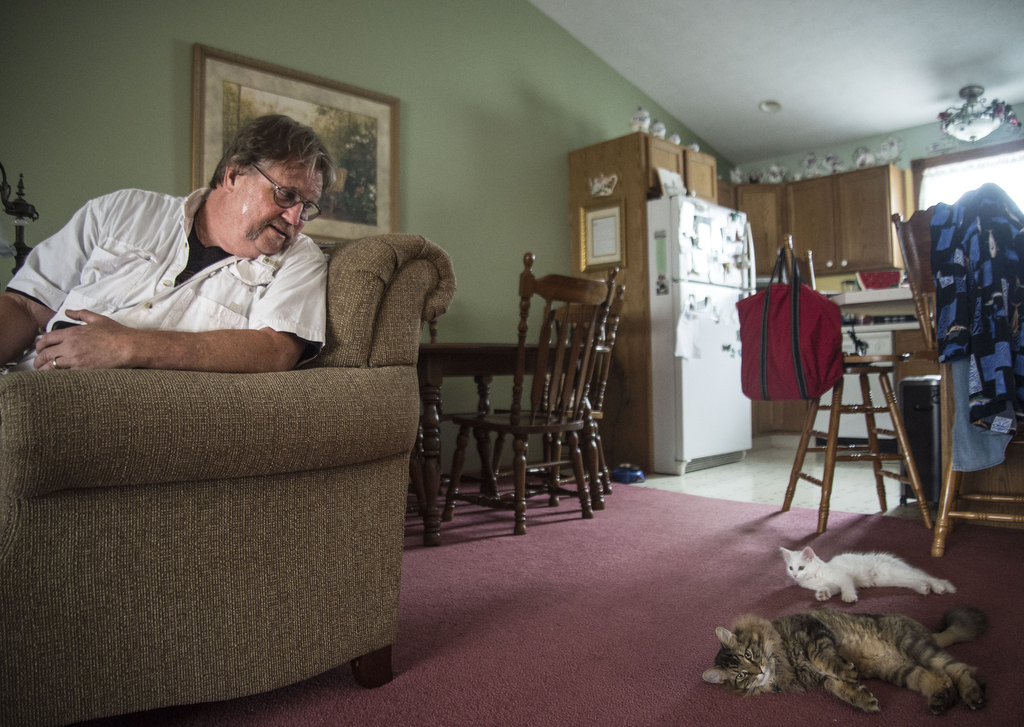
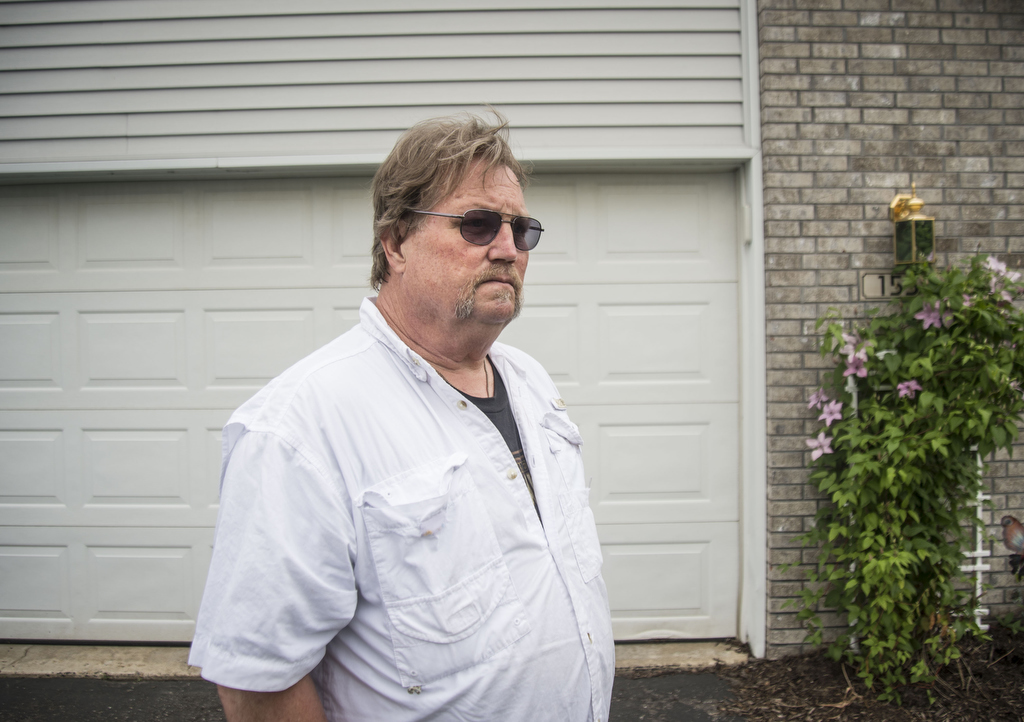
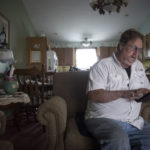

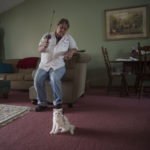

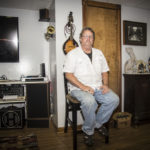
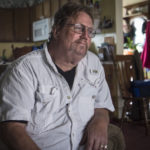




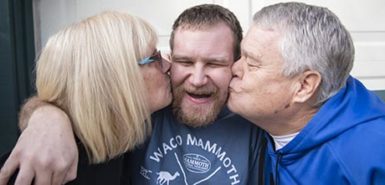 /a>
/a>
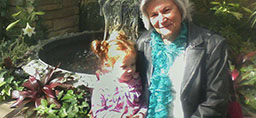 /a>
/a>
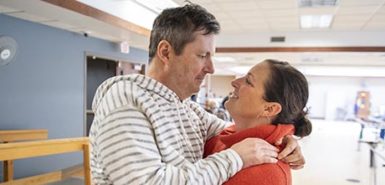 /a>
/a>
Way to go Derrick! You and Deb are so encouraging to others!!! You both give back in so many ways !
Derrick, you are the strongest, positive, encouraging, and faithful man I know! I love you so much brother! Your doing amazing things, and God is definitely proud of you!
I am the Coordinator for the Grand Rapids Breathers’ Club, and we are a community organization in partnership with Spectrum Health and meetings held at Priority Health once a month. We have a general session that helps teach people with various chronic lung conditions how to live and cope to manage life with these conditions. We also have a Harmonica and Music program that follows each month to engage and teach others how to play Harmonica and use music to open and expand their lungs, their heart, and their mind. We’ve had other non-respiratory Harmonica players from the community join our group. We’d love to have a visit from Derrick. Our next meeting is coming up August 8, 2016 and starts at 11am for General Session, and 12:30pm for Harmonica Program. Please pass this along to Derrick ASAP and he is welcome to email me or call me at 616-560-3745 to get information to attend. I work as a Respiratory Therapist for Butterworth and HDVCH. Thanks for the article!!
We’re getting the message to him! Thank you! 🙂
hello i am sorry i just got your message i have been on vacation for the last couple of weeks please feel free to email me or i can give you a call thanks Derrick